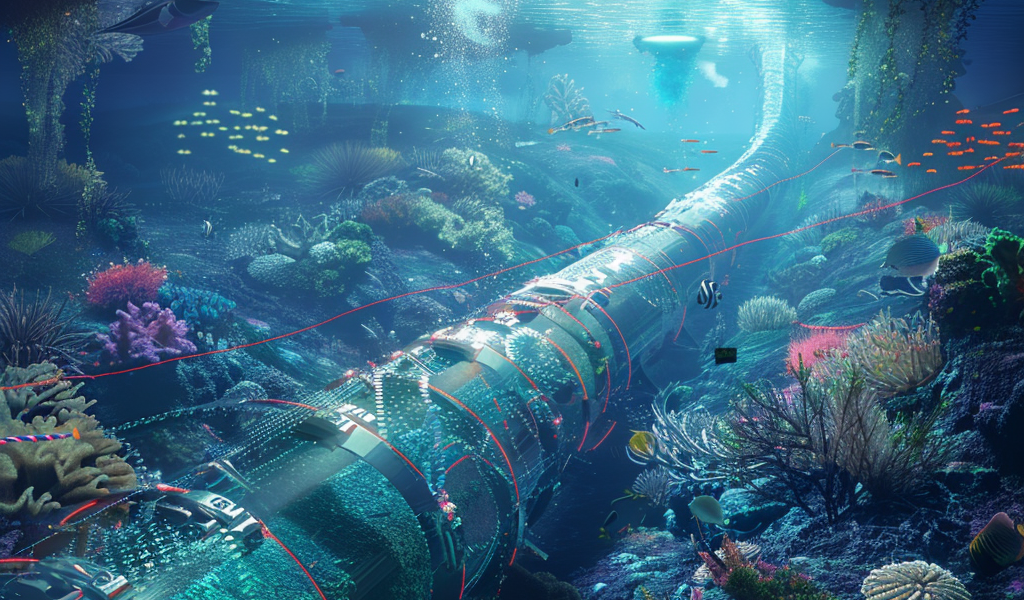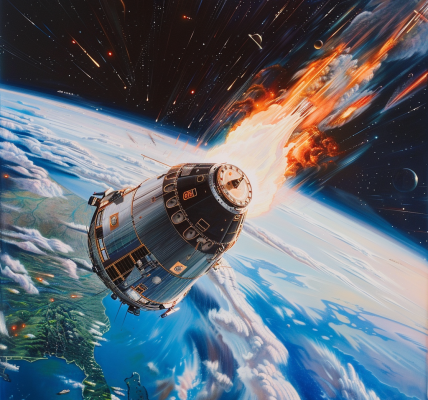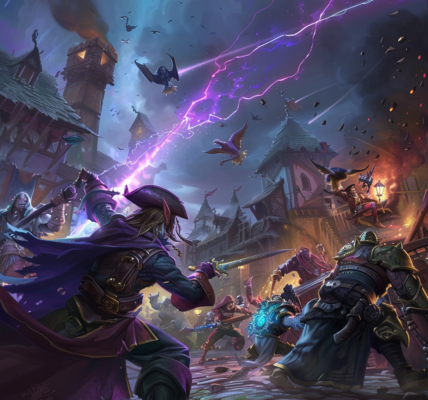Meta, the tech giant known for its expansive digital infrastructure, is reportedly embarking on an ambitious project to construct a new subsea cable that will span the globe. This initiative aims to enhance connectivity across multiple continents, linking the United States to regions in Asia and Africa through a network of underwater cables.
According to insights from industry experts Roderick Beck and Sunil Tagare, the proposed subsea cable will stretch approximately 40,000 kilometers and is expected to involve an investment of around $2 billion. The cable, informally referred to as ‘W’ due to its unique routing shape, is designed to facilitate high-capacity data transmission, boasting an impressive estimated capacity of 320 terabits per second (Tbps).
There are two potential routes being considered for the cable’s path. One suggested route, proposed by Tagare, would connect the east coast of the United States to India, with a stop in South Africa. From India, the cable would then continue to the west coast of the United States, making an additional stop in Darwin, Australia.
Alternatively, Beck has proposed a different routing strategy that would see the cable branching off from Mumbai to Singapore, with possibilities for further extensions to Australia and Japan. Additionally, this route could include a landing point in Lisbon before heading toward the western coast of Africa.
One significant aspect of this project is the decision to completely avoid certain regions that have historically posed challenges for subsea cable operations. The cable will not traverse the Red Sea, the South China Sea, or Egypt, which have been problematic areas for cable installations in recent years.
It is anticipated that Meta will retain full ownership of the cable, with plans for it to land in Jio facilities located in India. This move aligns with Meta’s ongoing commitment to expanding its global network infrastructure, as the company is already involved in several other subsea cable projects, including the Echo, Bifrost, Havhingsten, Amite, and Anjana cables. Notably, the 2Africa cable, which is part of Meta’s broader strategy, is already partially operational.
While inquiries were made to Meta regarding this new project, the company opted not to provide any comments at this time. The strategic importance of this subsea cable project cannot be understated, as it aims to bolster internet connectivity and data transmission capabilities across continents, catering to the ever-increasing demand for digital services.
As Meta continues to expand its influence in the global telecommunications landscape, the construction of this subsea cable will likely play a pivotal role in shaping the future of internet connectivity and accessibility for millions of users worldwide.





